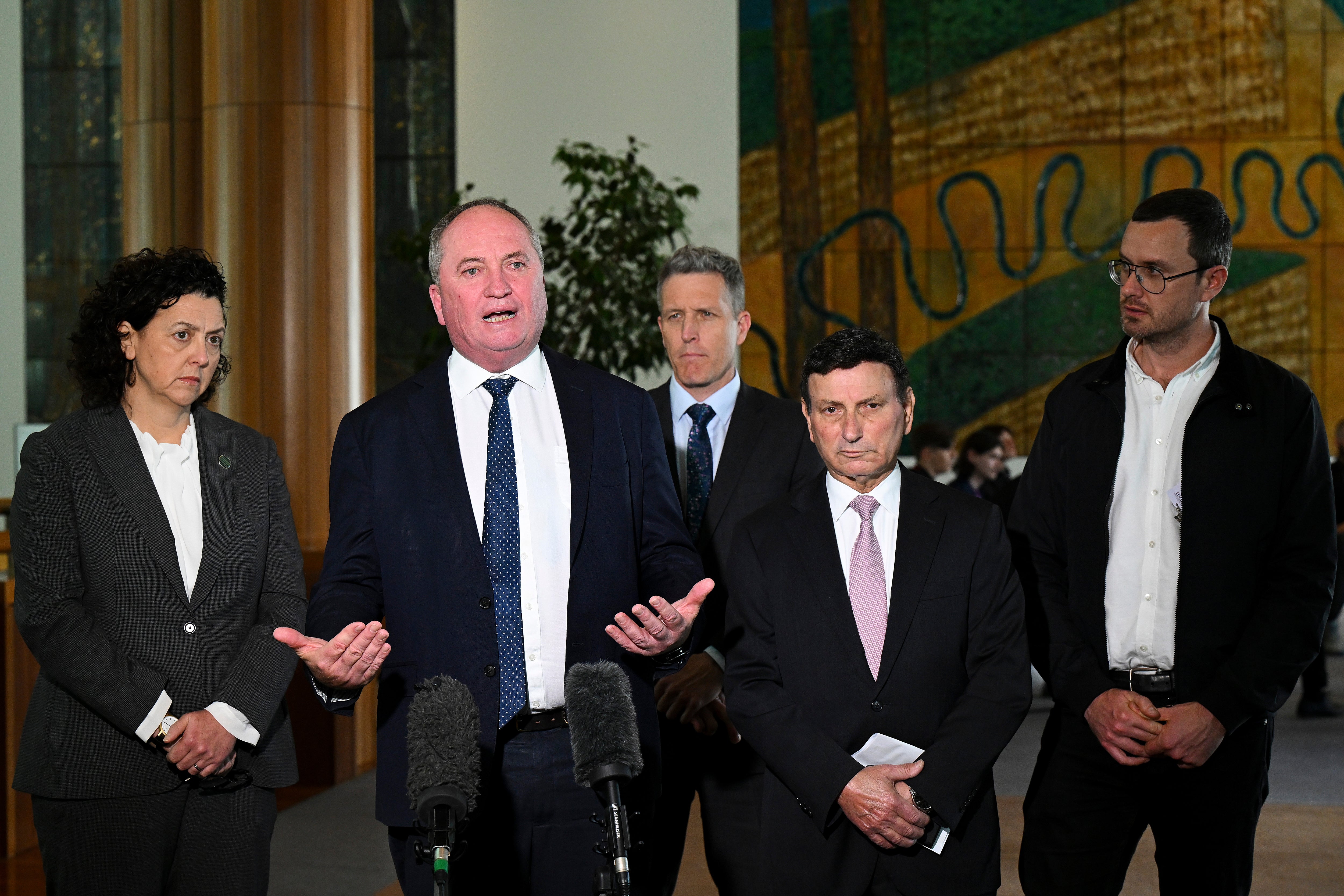Australian lawmakers head to US to lobby against efforts to extradite WikiLeaks founder Assange
A group of Australian lawmakers say they will travel to Washington this month to lobby the United States to abandon its efforts to extradite WikiLeaks founder Julian Assange

Your support helps us to tell the story
This election is still a dead heat, according to most polls. In a fight with such wafer-thin margins, we need reporters on the ground talking to the people Trump and Harris are courting. Your support allows us to keep sending journalists to the story.
The Independent is trusted by 27 million Americans from across the entire political spectrum every month. Unlike many other quality news outlets, we choose not to lock you out of our reporting and analysis with paywalls. But quality journalism must still be paid for.
Help us keep bring these critical stories to light. Your support makes all the difference.
A group of Australian lawmakers said Tuesday they would travel to Washington this month to lobby the United States to abandon its efforts to extradite WikiLeaks founder Julian Assange.
The delegation includes former Deputy Prime Minister Barnaby Joyce and five other lawmakers from across the political spectrum. Their trip is timed to draw attention to the issue ahead of a planned visit to the White House in late October by Australian Prime Minister Anthony Albanese.
Independent lawmaker and delegation member Monique Ryan told the Australian Broadcasting Corp. they represented a large group of lawmakers who feel "really, really strongly about the importance of securing Mr. Assange's freedom.”
Ryan said Assange was in poor health which made the matter more pressing.
Assange, an Australian citizen, has spent the past four years in Britain’s Belmarsh Prison fighting extradition to the U.S. He has been charged with espionage for publishing classified military and diplomatic cables through WikiLeaks. If found guilty, he could face a sentence of up to 175 years in prison.
The effort by the Australian lawmakers is the latest in a series of international moves raising questions about the extradition. Pope Francis met with Assange's wife Stella in June, which she said was evidence of his ongoing support for the family's plight. In May, Brazil’s President Luiz Inácio Lula da Silva denounced the lack of concerted efforts to free Assange.
Before he was incarcerated, Assange took asylum for seven years in the Ecuadorian Embassy in London in an attempt to avoid extradition to Sweden over sexual assault allegations. Sweden dropped that investigation in 2019 because so much time had elapsed.
Greg Barns, a human rights lawyer and Assange campaign adviser, said most Australians believed the matter should come to an end.
“Julian should be immediately reunited with his wife and children," Barns said. "That can only happen if the U.S. Department of Justice drops its extradition bid at once.”
The delegation plans meet with members of the House and Senate as well as the State Department and Justice Department. They will also meet with organizations including the American Civil Liberties Union, the Foundation for Individual Rights and Expression, and the Committee to Protect Journalists.
Assange’s brother Gabriel Shipton said even Australians who didn’t support Assange's actions believed he had suffered enough and should be set free.
American prosecutors allege Assange helped U.S. Army intelligence analyst Chelsea Manning steal classified diplomatic cables and military files that WikiLeaks later published, putting lives at risk.
Subscribe to Independent Premium to bookmark this article
Want to bookmark your favourite articles and stories to read or reference later? Start your Independent Premium subscription today.